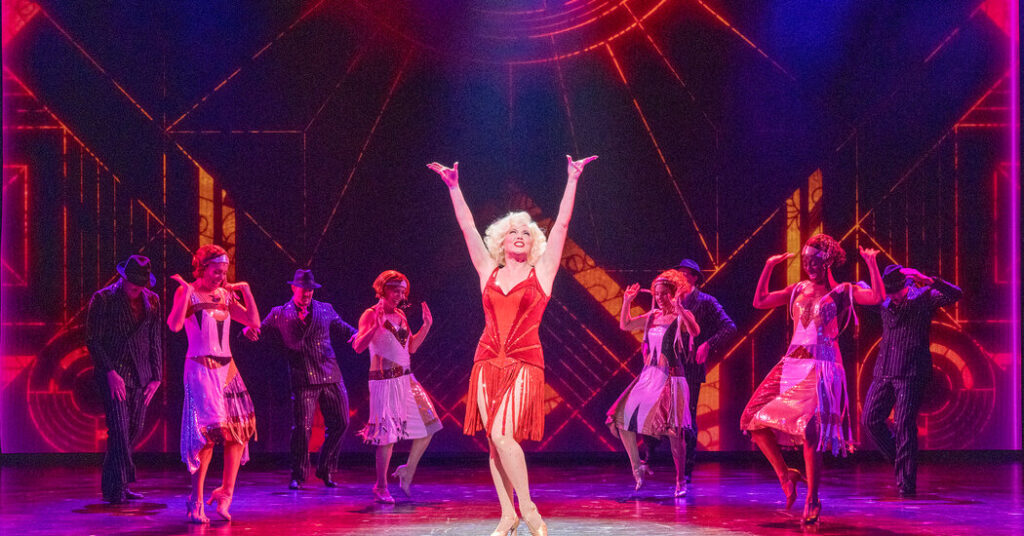“Smash,” a stage musical inspired by the NBC television series about a group of theater artists trying to make a show focusing on Marilyn Monroe, announced on Tuesday that it would close on June 22 after failing to find sufficient audience to defray its running costs on Broadway.
The show announced the closing just two days after the Tony Awards. It had not been nominated for best musical, and its request to perform on the awards show was rebuffed; it was nominated for best choreography (by Joshua Bergasse) and best featured actor (Brooks Ashmanskas) but won neither.
The musical began previews on March 11 and opened on April 10 at the Imperial Theater. At the time of its closing, it will have played 32 previews and 84 regular performances.
Set in the present day, the musical depicts a development process that is thrown into chaos when the actress portraying Monroe (played by Robyn Hurder) comes under the influence of a coach (Kristine Nielsen) whose devotion to method acting causes the actress to behave impossibly in rehearsals. The making-of-a-show concept and the rehearsal room characters are similar to, but not the same as, those in the television series, which was created by Theresa Rebeck and aired for two seasons, in 2012 and 2013, before being canceled.
Reviews were all over the map. In The New York Times, the critic Jesse Green gave it a rave, calling it “the great musical comedy no one saw coming.” But there was no critical consensus, and box office grosses have fallen since the opening — weekly grosses peaked at $1 million during the week that ended April 20, and were down to $656,000 during the week that ended June 8.
The musical was capitalized for $20 million, according to a filing with the Securities and Exchange Commission. That money — the amount it cost to finance the show’s development — has not been recouped.
“Smash” features a score by Marc Shaiman and Scott Wittman, and a book by Bob Martin and Rick Elice; it is directed by Susan Stroman. The show’s producing team is led by Robert Greenblatt, Neil Meron and Steven Spielberg, all of whom played key roles in developing the television series.


